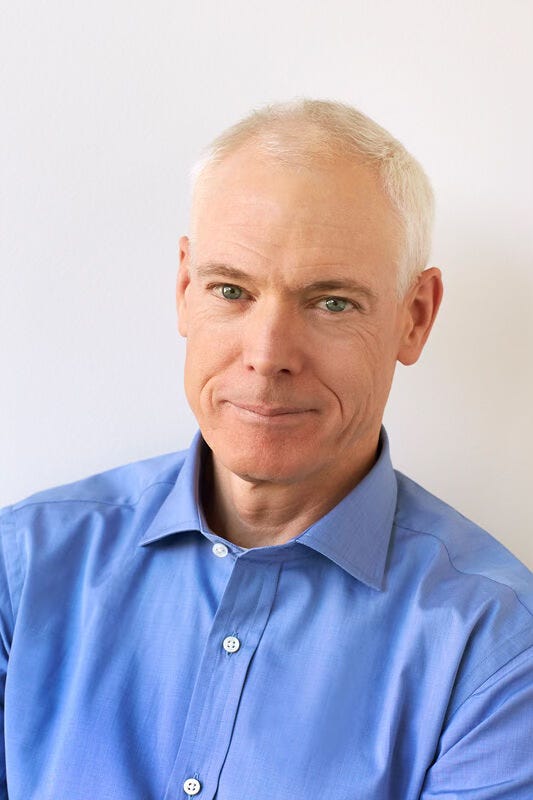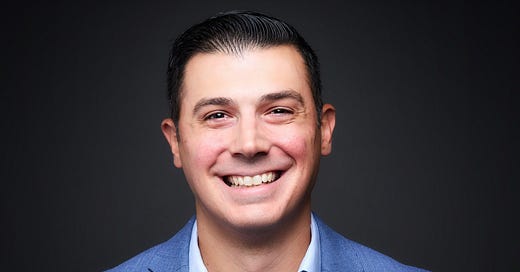💡 Read This, and Never Worry About a Podcast Appearance Again
Step-by-step approach to podcast interview excellence
The red recording light blinks on, your name gets announced, and the show is underway. Whether it's your first podcast or your fiftieth, that moment still makes your stomach flutter. As podcasts grow more popular, being a good guest matters more than ever for professionals who want to expand their reach.
Podcast appearances open doors. A great interview gets shared and talked about — creating opportunities you might not have anticipated. But lots of guests only worry about what they'll say, missing other crucial elements that make interviews memorable.
I've seen plenty of smart people struggle during podcast interviews even though they know their stuff cold. They have great ideas that nobody remembers because the audio was terrible, or they misjudged their audience, or they weren't ready for that particular show's style. Luckily, these problems are fixable.
The difference between a forgettable interview and one people talk about happens before you even say hello.
Here's what truly matters:
The Groundwork: Before You Accept
Listen to the podcast before agreeing to be on it. I don't mean skimming the description — actually listen to a full episode. Notice how the host interviews people, what questions they tend to ask, and the overall feel of the show. This helps you figure out if the podcast fits your message and style.
Get a prep call with the host. Susan Barry from the Top Floor podcast says, "A prep call is a small time investment that creates confidence, clarity, and a more compelling conversation — meaning the listener won't get bored or annoyed." Use this call to connect with the host, understand what they want from the episode, and clear up any questions about how things will work.
Find out the basic details. Audio only or video too? How long are episodes typically? Do they edit heavily or air it as recorded? Knowing these things shapes how you prepare and what equipment you'll need.
Setting the Technical Stage
Bad audio ruins interviews faster than anything else. You don't need fancy equipment, but please don't use your laptop's built-in mic. Even a basic external microphone makes a huge difference. For occasional appearances, a cheap lavalier mic ($35 or so) works fine. If you do podcasts often, maybe invest in something better.
If there's video — and even if they say they won't publish the video, assume they might — think about how you'll look. A decent webcam helps if you'll appear on camera regularly. Pay attention to your background, lighting, and how you're dressed. Looking put-together not only impresses viewers but also boosts your confidence.
Always test your equipment before interview day. Every podcast uses different recording platforms with their own quirks. Log on early to check your audio levels and video settings. This simple step prevents those awkward technical problems that can ruin great conversations.
Crafting Your Message Strategy
Before you sit down at the mic, figure out your key points. Start with one main message — what's the single most important thing you want listeners to remember? Then develop two to three supporting points that back up your main message. For each supporting point, prepare real evidence — a data point, an example from your experience, or a story that illustrates what you mean.
Think about who's listening and how long you'll be talking. Emma Stratton talks about the "altitude" of your message in her book "Make It Punchy." How technical should you get? If you're on a 90-minute industry podcast where everyone works in your field, you can get more detailed. If it's a 30-minute general audience show, stay high-level. Ask yourself: Does this audience already know the basics, or do I need to explain some foundations first?
Have at least two to three good stories ready to share. Brian Proctor's podcast "Tuesday's Thanks" often explores guests' career journeys and mentors, showing how personal stories connect with listeners in ways that plain facts just can't match. Stories about challenges you've faced, people who've helped you, or turning points in your career stick with people.
Don't memorize exact words — you'll sound like a robot. Instead, know your key points well enough that you can weave them naturally into the conversation, no matter what questions come your way.
The Interview: Presence and Performance
Show up early for your recording. Give yourself 10-15 minutes to adjust settings, check your sound, and make sureeverything's working right. This buffer time helps settle your nerves, too — nothing makes you stumble over words like rushing in at the last second feeling frazzled.
During the interview, really listen. The guests everyone loves aren't just good talkers; they're good listeners who build on what the host is saying rather than just waiting for their turn to speak. This creates actual conversation flow instead of two people taking turns making speeches.
Paying attention to your host's questions leads to better responses. You'll catch opportunities others miss — moments for humor, chances to add depth, or openings to circle back to your key message. This attentiveness makes ordinary interviews memorable.
When a question lines up with one of your prepared stories or examples, use it! But stay flexible — sometimes, the best moments come from directions you didn't expect. Don't be so attached to your prepared points that you miss organic opportunities.
Watch how fast you're talking, especially if you tend to speed up when nervous (I definitely do this from time to time). Consciously slow down if you catch yourself rushing. And if you stumble over your words? Take a beat and keep going. Unless the podcast is heavily edited, small verbal slip-ups are totally normal and often make you sound more real.
By mixing solid preparation with real in-the-moment engagement, you turn what could be a stressful experience into something valuable. Master these elements, and you'll never worry about a podcast appearance again.
Keeping Your Marketing Team in the Loop
If you have anyone on your team in a marketing role — whether a coordinator, manager, director, or VP — communication is key. Even more importantly, early communication is key.
Giving your marketing team a heads-up on policy changes, fee adjustments, menu updates, or facility closures (like the fitness center) allows them to ensure this information is distributed through all the appropriate channels.
Here’s what your marketing team considers when a change occurs:
Does it require a social media update? Will it impact a scheduled campaign? Is this info listed on your Facebook or Instagram pages?
Does it need to be updated on brand.com, your vanity site, LinkTree, or Issuu?
If it’s a menu change, what about mobile ordering platforms, digital in-room directories, Yelp, OpenTable, or Resy? For catering menus — Cvent?
Is there digital signage in the lobby that needs a refresh? In-room TV menus? Wi-Fi splash screens?
What about third-party platforms like Expedia, Booking.com, TripAdvisor, Google Business Profile, or your CVB portal?
On-property signage or elevator wraps — do they need to be reprinted?
Has the front desk been notified? Do guest key packet inserts need to be updated?
...and the list goes on.
Even if your marketing professional doesn’t directly manage all of these platforms, they’re connected to the people who do — and can get things moving efficiently.
And it's not just guest-facing changes that matter. Internal updates are just as critical. Is someone leaving the company? Your marketer may need access to social accounts, Canva files, or the leadership section on your website. Do emails need to be forwarded? Every detail counts.
In short: early communication reduces fire drills, stress, and confusion.
Set up an intro call with your marketing lead if you’re new to a role.
Establish weekly check-ins with your team. Share updates during standups, via Teams, or even a quick email. We’re all in this together — and when we communicate and operate as one team, success follows.
Dustin Soper serves as the corporate social media manager for Spire Hospitality, overseeing social media and digital marketing efforts across the entire Spire portfolio. His role includes supporting on-property social media initiatives as well as spearheading corporate-level marketing strategies.
Dustin brings a wealth of experience from previous roles at Dimension Hospitality, Shania Twain, Reba McEntire, and Grindr, one of the globe’s top social networking platforms.
Dustin’s career trajectory is a testament to his drive and talent. He began in the hospitality industry in 2016 as a concierge and PBX operator at the DoubleTree by Hilton Hotel Nashville Downtown. His dedication quickly led him to a Marketing Coordinator position, and he eventually advanced to Social Media Manager. Recognized for his outstanding performance, Dustin received the Hilton Travel with Purpose Grant for the hotel and was named Hilton’s Top Interactive Social Media Team Member in 2017. Additionally, he was selected for the “Hilton Suggests Explore” program, highlighting his expertise in Nashville’s local attractions.
In April 2019, Dustin joined StepStone Hospitality as Social Media and E-Commerce Manager, where he played a key role in enhancing the digital presence of luxury, select-service, and full-service properties across the portfolio, including enhancing the company’s digital presence.
Dustin joined SPIRE Hospitality in August 2022. His innovative strategies, captivating content, and collaborative spirit earned him the Impact Award at Spire’s Leadership Conference in March 2023. In February 2024, he was recognized as one of Hotel Management’s “Forty Over 40,” celebrating his leadership and passion within the hospitality industry.
Outside of work, Dustin enjoys photography, shopping, and spending quality time with friends.
The Discipline Deficit: Why Most Organizations Fall Short of Excellence

“Everyone would like to be the best, but most organizations lack the discipline to figure out with egoless clarity what they can be the best at and the will to do whatever it takes to turn that potential into reality. They lack the discipline to rinse their cottage cheese.”
— Jim Collins, “Good to Great: Why Some Companies Make the Leap...And Others Don't"
Data Insights: Four Ways Data Can Amplify the Human Side of Hospitality
“We’ve always known that people power hospitality. Today, data and technology give us new tools to better empower the people delivering it. When we help our teams see their impact, feel recognized, stay connected and work with purpose, we’re not just building better businesses — we’re building better experiences for everyone they serve.” — Actabl CEO Steven Moore
Read Steven’s full article on Hotel Business
Mark Your Calendar: Upcoming Industry Events
ILC’s New York Cultivate in NYC (April 24-25)
BITAC Operations 2025 in Newport Beach, CA (April 27-29)
Hotec Operations 2025 in Orlando, FL (May 19-21)
NYU International Hospitality Investment Forum 2025 (June 1-3)
First time reading CJ’s Weekly Check-In? Don’t miss out — subscribe today!
CJ’s Weekly Check-In is unlike any other newsletter in the hospitality industry. It empowers hospitality leaders with impactful communication strategies, tips, tactics, and insight to help them cut through the noise and capture attention in the space.
Alongside thoughtful contributions from CJ Media Solutions, LLC's team about media relations, executive thought leadership, crisis communications, public speaking, and more, the newsletter features brief commentary from some of CJ Media's partners, including industry journalists, analysts, association leaders, podcast hosts, and more
Subscribe now for the latest insights and communication strategies to set you apart.






